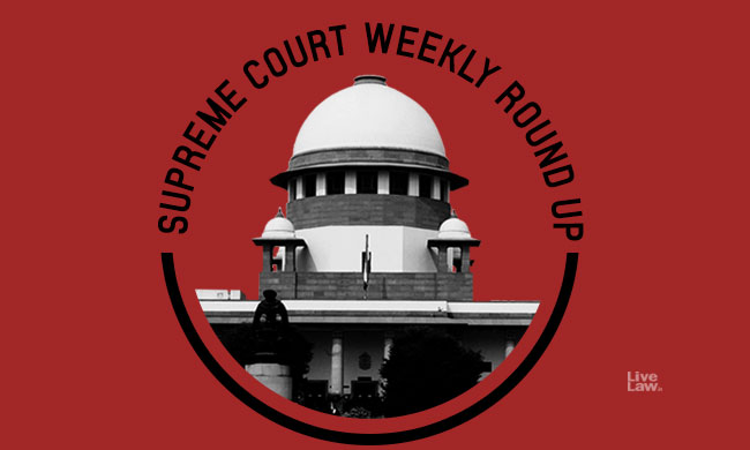- Home
- /
- Top Stories
- /
- Supreme Court Weekly Round Up
Supreme Court Weekly Round Up
Arabhi Anandan
3 Feb 2020 11:26 AM IST
● Coverage Of 'Flood & Inundation' Insurance Includes Damage Caused By Heavy Rains And Not Just Overflowing Of River [Oriental Insurance Company Ltd v M/s J K Cement Works Ltd] The issue before the Court was that whether these words included only damage caused by overflowing of rivers, or they included damages caused by heavy rains as well. To decide the matter, the...
Next Story



